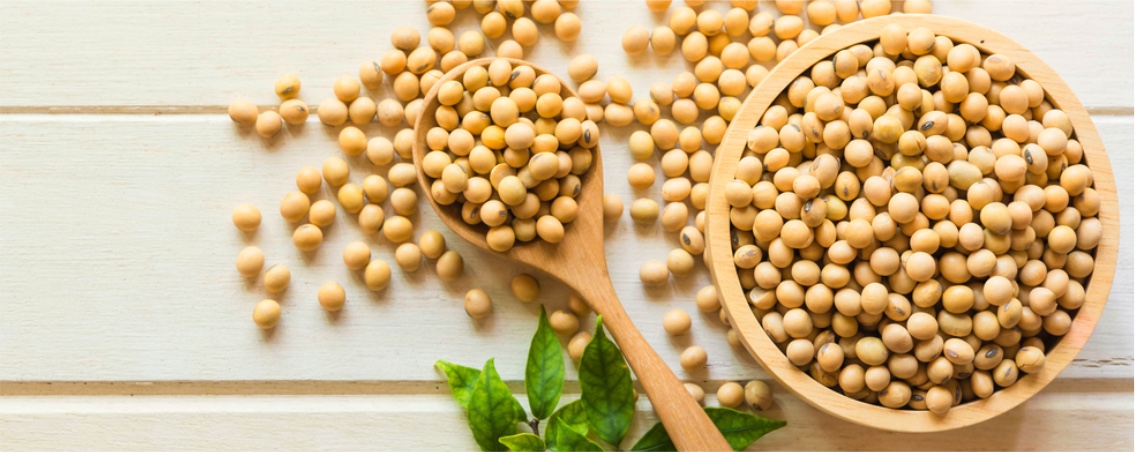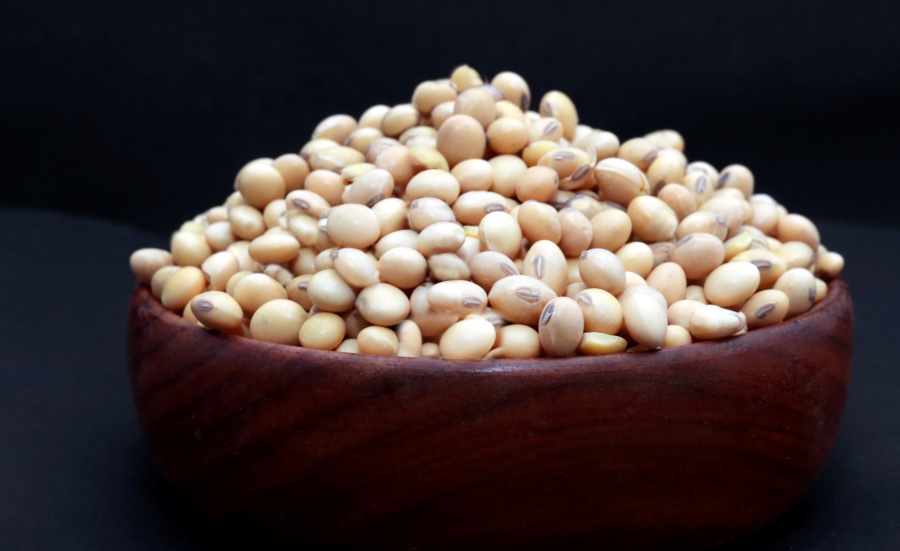
Health Benefits of Soy
A complete power-packed protein that contains all nine essential amino acids, soybeans are low in saturated fat and high in
 They act as an important source of protein, especially for people who follow a vegan or vegetarian diet. Also, soy can be processed into milk and meat substitutes.
They act as an important source of protein, especially for people who follow a vegan or vegetarian diet. Also, soy can be processed into milk and meat substitutes.
A nutrient-rich food, soybean contains
- Vitamins- Soy is a good source of vitamins B, C and K.
- High-quality protein- Soy has all the essential amino acids our body needs but cannot produce by itself.
- Fiber- Soy flour, textured vegetable protein and other soy food are high in fiber making it good for our gut health.
- Essential fatty acids- Soy contains linoleic acid and also the essential omega-3 fatty acid, alpha-linolenic acid.
- Phytochemicals- Soy contains many phytochemicals that may help prevent chronic disease.
Soy products can prevent or help with the treatment of chronic disease
Coronary Heart Disease
Soybeans are a great source of healthy omega-6 fatty acids, which aid in reducing LDL cholesterol, averting the risk of heart disease. Regular addition of soybeans in your diet helps enhance optimal cardiac function as it facilitates smooth muscle function, increases the elasticity of arterial walls, and keeps the blood pressure under control.
Cancer
Some studies show that a diet high in soy may reduce the risk of certain cancers of the breast, colorectal, and even prostate. Soybeans contain fiber, and a diet high in fiber may lower your risks for several cancers.
Osteoporosis
Soy protein and isoflavones are considered a safe and effective option for improving bone health in women during early menopause. A diet rich in soy can slow down the rate of bone loss, lowering the risk of osteoporosis.
Diabetes
Soy foods may be extremely beneficial for people with diabetes and to prevent the onset of it. It helps keep blood glucose levels under control. Also, the protein in soy reduces the risk of developing kidney and heart disease, both of which are common in diabetics.
Weight control
Low in fats and calories and high in nutrition, when you replace soy with higher-fat foods, it helps reduce the overall fat content of the diet. Also, soy is rich in protein that keeps you feeling full for a longer time, reducing the urge to eat often.

Convenient and Delicious
Variety- There are multiple types of easy-to-prepare soy products to fit your lifestyle. No lactose or casein- Soy is a nutritious alternative for people who cannot tolerate dairy products.
Meat alternative- Soybean is considered as a healthy substitute for meat.
How much soy should you eat?
To get the greatest benefit from eating soy, healthy adults should try to get about 15 grams of soy protein (with a range of 10-25 g) and about 50 milligrams of naturally occurring isoflavones (with a range of 30-100 mg). That's roughly about two servings of soy a day.